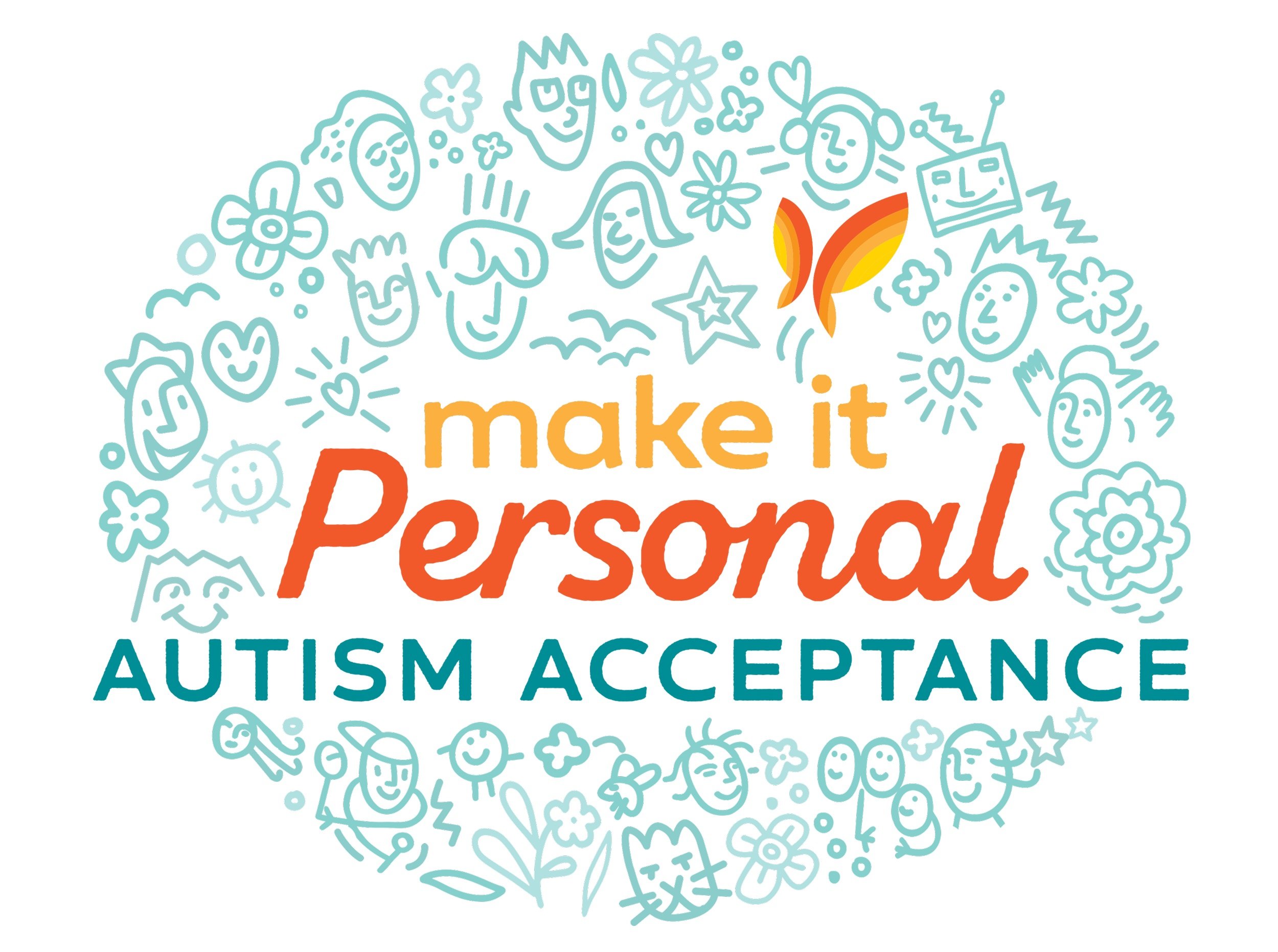Awareness vs. Acceptance
Why Awareness?
A critical initial step to get people to support and lift up a vulnerable population is to bring awareness to a particular cause. We see this every day for a number of causes with ribbons, events, and designated days/month. The basic idea is this – if you want people to care about something, they have to know that there is an issue that needs their attentio.
It was in this spirit that autism awareness month started in the early 1970s, at a time when the national rates of autism were approximately 1 in 2,000 – a dramatically different number from today’s national rate of 1 in 36. So, when you consider the relative rarity of autism back when autism awareness month was launched, it makes sense why awareness was the focus. Back in the 1970s, a person could go their whole life and never meet someone with autism. Today, nearly everyone has a story about a family member, friend, or neighbor with autism. Simply put, many of us have become aware of autism by how widespread autism is, how much more integrated autistic individuals are, and the effectiveness of autism awareness campaigns.
A critical initial step to get people to support and lift up a vulnerable population is to bring awareness to a particular cause. We see this every day for a number of causes with ribbons, events, and designated days/month. The basic idea is this – if you want people to care about something, they have to know that there is an issue that needs their attention.
It was in this spirit that autism awareness month started in the early 1970s, at a time when the national rates of autism were approximately 1 in 2,000 – a dramatically different number from today’s national rate of 1 in 36. So, when you consider the relative rarity of autism back when autism awareness month was launched, it makes sense why awareness was the focus. Back in the 1970s, a person could go their whole life and never meet someone with autism. Today, nearly everyone has a story about a family member, friend, or neighbor with autism. Simply put, many of us have become aware of autism by how widespread autism is, how much more integrated autistic individuals are, and the effectiveness of autism awareness campaigns.
What Comes After Awareness?
April has long been designated as “Autism Awareness Month” both nationally and worldwide. Recently, we are starting to see it being referred to as “Autism Month” or “Autism Acceptance” Month, a move designed to start to move the goalposts past awareness and toward the meaningful change that can come through acceptance.
At Autism New Jersey, we agree that while awareness is an important first step of bringing about societal change, it is not the end goal. Rather, we share in the goal of bringing about acceptance for autistic individuals and, in doing so, celebrating meaningful integration and inclusion into society.
Does “Awareness” Still Have a Place?
At Autism New Jersey, we do still use both “awareness” and “acceptance” in our messaging, depending on the audience. Rather than see the word “awareness” as taboo, we see it as an important steppingstone to making a difference. In some cases, our goal still may be something as foundational as awareness depending on the audience. Yet in many other cases, we recognize that acceptance is where the conversation needs to be.
For those living with autism daily, we also see the fatigue as April approaches every year because there is no shortage of awareness in the household of a family with an autistic individual. And we’re sensitive to how a more basic message may oversimplify what individuals with autism and families experience every day. Therefore, we make a deliberate effort to not only promote the idea of awareness and acceptance but to tell the stories of autistic individuals and those whose lives are affected by having someone with autism in their life.
Where Do We Go From Here?
Some people may not realize this, but our awareness and acceptance efforts are actually year-round endeavors to help the general public and policymakers understand the complex and pressing needs of the full spectrum of the autism community. We encourage everyone to share their stories as every story adds to a greater understanding of the value of awareness and acceptance.
We thank all our ambassadors for their part in helping us achieve this important goal of awareness and acceptance – two critical steps to ensuring that autistic individuals are living safe, healthy, and happy lives.







